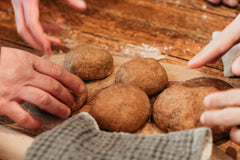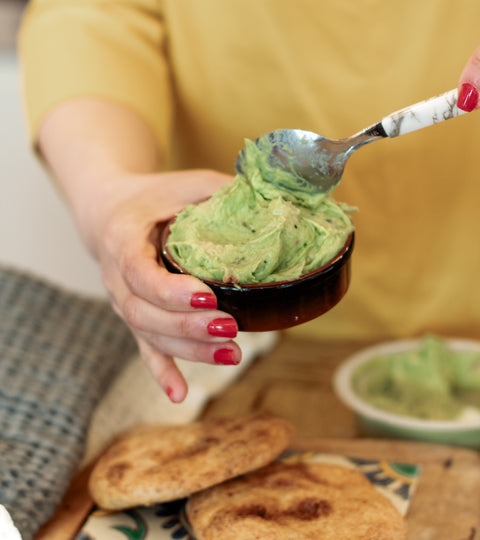Food, mental health and wellbeing
Food, mental health and wellbeing
Mandeep Rupra, shares her inspiring story and the journey that she has been through to own her story and narrative. In her recently published blogpost for Mind she talks about the long journey to get to the point to treat mental health with kindness, patience, and care without stigma. She adds, “With equitable competent care and support, I believe we can achieve this.”
Chose to talk about mental health
I grew up in a culture where nobody talks about mental health, at least at my early youth and adolescence. I do hope this has been changed throughout the years. But I have chosen to, it was quite a journey and like any other journey was not easy. But I am grateful that my mum was open to the concept of therapy sessions and for a year or so during my teenage years took me once a month to a therapist that I wanted to talk to and never asked me about the conversation we had.
Now that I look back at my younger self, I would say my issue was not just the typical teenage struggle, it was more than a consistent “fit-in” issue. It has been just very recently - from the beginning of this year, to be precise - that I started to learn more about how my brain works. More importantly, acknowledging that I would never “fit-in” and I do not have to.
This helped me to make a scene of the whole complex and not very healthy relationship with food as an interconnected package that comes with ADHD.
I am bouncing between impulsive eating or stop eating when I am under pressure and stress or in a hyper focus mode for work, or even simply whenever I feel bored.
The connection between mind and body
Kimberley Wilson, as a psychologist and a nutritionist, very well pointed out the fact that “The connection between mind and body is often lost”. In other words, we dismiss the profound impact of the biological and lifestyle side on our mental health. Based on different scientific research projects, she also argues that “There is a causal relationship between the quality of your diet and the risk of anxiety, depression, and dementia.”
That is why consistency and lifestyle vs dieting become crucial. As someone who has struggled most of her teenage and adult time, with her happy weight and trying different diets I totally relate to this.
For me, everything started with collecting data about myself and learning more about my body (then brain) and my eating habits. That process shed the light on so many patterns that then gradually I managed to find a series of solutions and set up an eating strategy, as a consistent practice.
That is how the journey into developing and introducing a new (healthier) lifestyle starts. Then you start to respect and appreciate what happens in the body and how it affects the brain. Even though the validation often came with the physical change.It is not always easy to measure the impact on the brain, as it is long term you can’t see it.
A holistic approach is needed
Self-awareness, data collecting about my body, my eating habits, how my brain works, and also understanding the fact that my neurodiverse brain can control those habits, were my crucial steps to change habits.
Plus it is a process, which means it takes time and needs patience and you need to be ready to embrace the lows and highs of the journey with curiosity and openness. It is equally fine to seek support during the process if it is needed.
Nutrition is one pillar of having a healthy life, sleep, stress, and physical activity are the equally important connected pillars.
Some practical strategies to start your journey
- Make eating an exciting event, which means like any other event there will be planning, start, pick and end.
- Engage with what you put into your mouth. The best way to do it is to make your own food and bread and get to know the ingredients (including know your carbs and fat and the source of the food).
- Set up a strategy for occasions where you healthy habits in risk of interruption (identify the issue/what we want to do/how we are going to do it/what would be the best action)
- Eat regularly - collecting data on how and when and how your eating habits are disrupted (for me as I mentioned earlier on this post, is stress, pressure, going to hyper focus mode and boredom).
- Make things interesting for yourself, like drinking water, if you are anything like me and do not have that habit.
Wrapping up this post with a creative tip
I would like to share a cool tip by Matt Boyles, Co-founder of Fitter Confident. I was listening to one of the episodes of Lisa Johnson’s podcast on “How to add fitness into your life”. She was in conversation with Matt Boyles.
He had a very practical, fun, and simple tip to motivate ourselves to drink more water.
Put 5 elastic bands in different colours around our bottle of water every morning and take one out after each time you finish the bottle. It looks like a game and also encourages you to drink 2.5 litre of water/day.
Enjoy the journey,
Leila x


